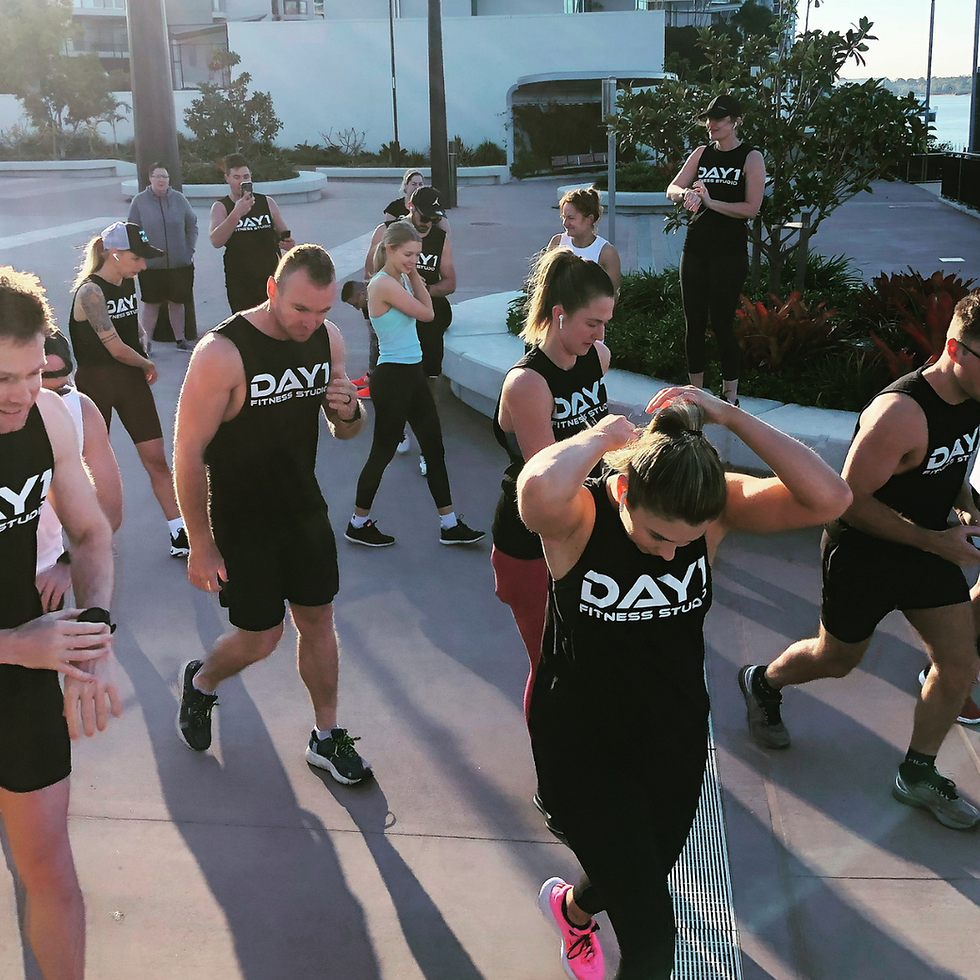Alcohol... The effects on my training
- Brandon @ Day1

- Apr 29, 2021
- 3 min read
Ahhhhh... it’s Friday afternoon; we’ve had a long week at work, great week with our training and nutrition, so how harmful can a couple of glasses of wine really be right? We’ve all been there.
There are two ways of looking this situation; we encourage the life balance, we encourage you to do things that you need to do to destress, we encourage you to socialise with friends and family. However, when we're talking training, nutrition and exercise performance there is (unfortunately) no place for alcohol.
Throughout this article, we’ll explain the effects alcohol (the chemical substance) has on the body and why limiting consumption will lead to better results.

Firstly, let’s talk how the body processes alcohol when you drink. On consumption; the alcohol (substance) is absorbed into your blood, the body detects a 'harmful' substance within the blood and the message is received from the liver to process the alcohol out of the blood stream. The body will then try and extract the alcohol as sweat, urine or faeces, then pump the healthy blood back through the body. The liver on average can filter one drink per hour and because the chemical is such a toxin, the body will compromise all of the livers other vital functions to filter this blood. So although you may only consume 3-4 drinks in an hour the liver is continuing to work long after the session has stopped.
Whilst this process is going on; the liver can not do what its functioned to do. Process vitamins, minerals, produce enzymes, hormones that ward off infections and most importantly, store glycogen for metabolism.
So what does this mean for our training?
Well when we conduct a PT session we mainly metabolise energy anaerobically, which means from our bodies stored glucose levels rather than the reliance of oxygen (aerobic).
This energy system allows us to work explosively for shorter time frames to produce more powerful movements, like a set of 10 squats or a 45 second exercise interval.
If the liver has not been able to produce these excess energy stores from a big night out, we simply do not have the energy to achieve the workout results we set out to do. We won’t have as high calorie exertion; our concentration diminishes which results in our form and technique diminishing (higher risk of injury) and more importantly we just want to ‘sleep it off’ and potential miss sessions. Resulting in loss of routine, schedule and eventual regression with our fitness.
Secondly, there is the nutritional side of things (or lack thereof).
If you are on a calorie-controlled meal plan (restriction, macro’s, minimal carbs) ponder these questions:
- How many extra ‘unwanted’ calories am I consuming?
- How many carbohydrates am I consuming?
- Most diets restrict gluten, the key ingredient in beer is gluten. A lack of consumption can create a reaction once consumed in a rapid intake such as bloating, memory fog, agitated sinuses etc.
So why do we crave the good foods when having a few drinks?
Well it goes back to the liver and the processes it goes under and what's compromised whilst this is going on. The bodies energy production, neural messages from the brain and concentration are all compromised. Our brain is confused and thinks WE THINK WE’RE STARVING and when we’re starving, we want the quickest form of energy to refuel us, Carbohydrates. Generally speaking the carbohydrates we crave are fatty, salty, heavily processed and heavily calorie dense.
So in conclusion, alcohol really just slows down our progress. Sure it’s great to enjoy that balance and that’s another reason we train so hard and lead a healthy lifestyle but when there’s big goals in place, discipline is the key. If you've made yourself a health goal, commit to an alcohol free period and let the results do the talking.




Comments